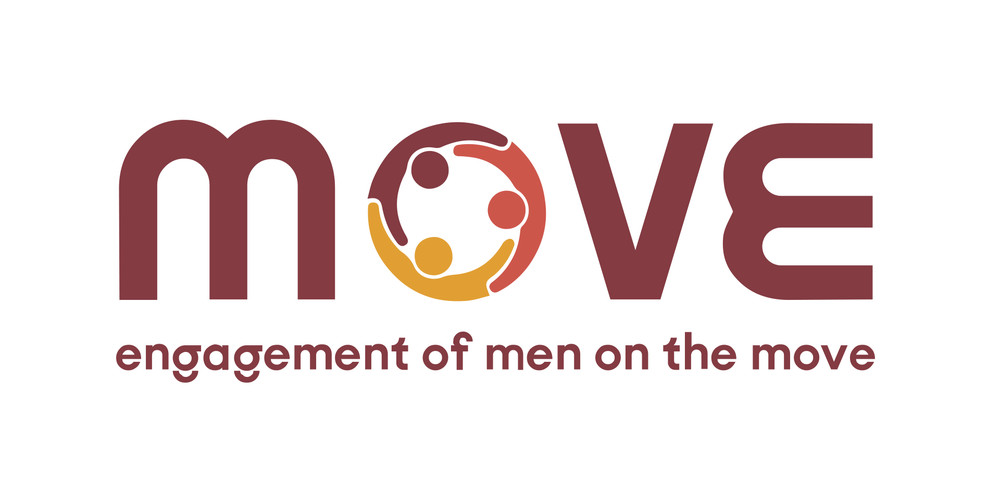
The MOVE project is proud to unveil the Guidance for Multiagency Collaboration, a crucial step in addressing violence against women within diverse populations. Check out the "Outputs" section below to view the guidance document.
Displaced women and girls face increased risks of multiple forms of violence as a result of conflict, persecution and displacement. Moreover, the COVID-19 pandemic has worsened the situation both in the fields of migration and that of gender equality and gender-based violence, exacerbating vulnerabilities of both migrant populations and women and children, especially survivors of sexual or gender-based violence.
The MOVE project aims to end men’s violence against women and girls, including honour- related violence and oppression, while acknowledging that men and boys have an important role to play in violence prevention. The MOVE project focuses on increasing the readiness and skills of both frontline professionals and of specialised perpetrator programme staff to effectively identify, refer and work with male perpetrators of gender-based violence with a migration background using an anti-racist, inclusive, and culturally sensitive approach while taking into account the COVID-19 pandemic.
Our work
The specific objectives of the MOVE project are to:
- Improve the knowledge and skills of frontline professionals in direct contact with potential male perpetrators, through migration-related service provision for identification of GBV, identification of available resources and paths for the referral of perpetrators, and acknowledging changed practices due to pandemic situations
- Increase the capacity of EU perpetrator programme professionals to effectively work with male perpetrators with a migrant background, also within the COVID-19 context
- Boost the engagement of key public institutions and stakeholders with regards to preventing and addressing GBV perpetration within the migration context
These objectives will be achieved through a focused and articulated needs assessment that will be conducted in Belgium, Germany, Greece, Italy and Spain with all relevant stakeholders; the development, piloting and delivery of training for frontline professionals; the development, piloting and delivery of capacity building for perpetrator programs and the engagement of public institutions and key services by developing specific activities (round tables, etc.) guidelines and recommendations.
MOVE Outputs
- Transnational Report on Needs Assessment for Perpetrator Programmes
- Capacity Building Programme for perpetrator work
- Training package for frontline professionals
- MOVE Guidance for Multi-agency Collaboration and Summary
- MOVE Dissemination materials for the engagement of men
- MOVE European capacity building workshops
Project Team
- CAM, Centro di Ascolto Uomini Maltrattanti Onlus, NGO and perpetrator programme focussing on the intervention in violence against women and children by promoting the work with men who act violently in emotional relationships, Italy
- Conexus, Associació CONEXUS Atenció, Formació i Investigació Psicosocials, no-profit NGO with GBV its main fields of expertise and activity, offering intervention programmes for women and children, and for male perpetrators, Spain
- Psytel, a cooperative of independent experts working in the field of information systems in health and prevention of violence against children, adolescents and women, France
- UWAH, NGO active in the promotion and protection of women’s and children rights; while also engaging with raising awareness and advocating for human rights at local, national and European level, Greece
- WWP EN, the European Network for the Work with Perpetrators of Domestic Violence, Germany and Europe
- ENoMW, secular, non-partisan platform that advocates for the rights, freedoms and dignity of migrant, refugee and ethnic minority women and girls in Europe
An external Advisory Board supervises and supports the project team
- Professor Marianne Hester, Affiliated Professor and leading researcher of gender-based violence at the University of Gothenburg, and Chair in Gender, Violence & International Policy at School for Policy Studies at the University of Bristol, supervises overall quality and methodology as a major expert in addressing GBV
- Elli Scambor from the Institute for Masculinity Studies and Gender Research (VMG, Austria) will support the quality and methodological development in working with male refugees and migrants based on the EU project FOMEN - Focus on Men
Newsfeed
Resources
- FOMEN Outputs
- Engage Roadmap
- ASVARW Research
- Qualitative Study on War, Masculinities, and Gender Relations with Lebanese and Syrian Refugee Men and Women
- Impact of Covid-19 in the migration area
- Attitudes Toward Violence Against Women: A Cross-Nation Study
- Daphne Toolkit
- Migration and asylum package (Italian)
- Covid-19 revision of WWP practice toolkit
- Responding to diverse ethnic communities in domestic violence perpetrator programmes
- WWP Annual Conference: Migration and Barriers to Perpetrator Work (Recording)
- WWP resources to make your perpetrator programme more accessible
Get in touch
Dimitra Mintsidis - WWP European Network – d.mintsidis(at)work-with-perpetrators.eu

